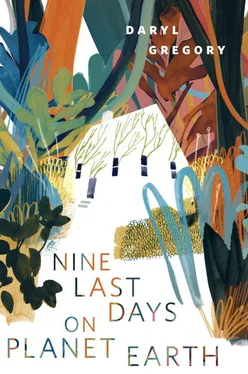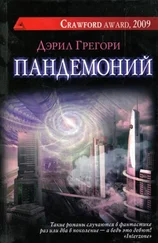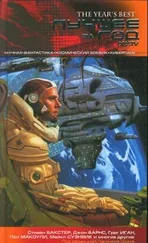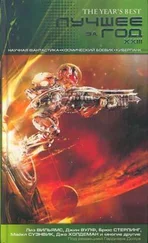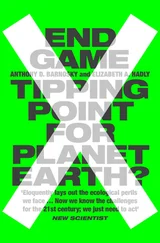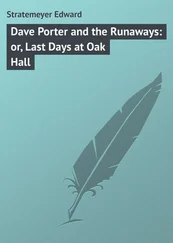Daryl Gregory
NINE LAST DAYS ON PLANET EARTH
1975
On the first night of the meteor storm, his mother came to wake him up, but LT was only pretending to sleep. He’d been lying in the dark waiting for the end of the world.
You have to see this, she said. He didn’t want to leave the bed but she was an intense woman who could beam energy into him with a look. She took his hand and led him between the stacks of moving boxes, then across the backyard and through the cattle gate to the field, where the view was unimpeded by trees. Meteors, dozens of meteors, scored the sky. She spread a blanket across the tall grass, and they sat back on their elbows.
LT was ten years old, and he’d only seen one falling star in his life. Not even his mother had seen this many at once, she said. Dozens visible at one time, zooming in from the east, striking the atmosphere like matches, white and orange and butane blue. The show went on, hundreds a minute for ten minutes, then twenty. He could hear his father working in the woodshop back by the garage, pushing wood through a whining band saw. Mom made no move to go get him, didn’t call for him.
LT asked for the popsicles they’d made yesterday and Mom said something like what the hell. He ran to the freezer, lifted out the aluminum ice tray. The metal sucked at his fingertips. He jiggled the lever and freed one of the cubes, grape Kool-Aid on a toothpick, so good. That memory, even decades later, was as clear as the image of the meteors.
He decided to bring the whole tray with him. He paused outside the woodshop, finally pushed open the door. His father leaned over his bench, marking a plank with a pencil. He worked all day at the lumberyard and came home to work with scraps and spares. Always building something for the house, for her, even after it was too late to change her mind.
“Did you see the sky?” LT asked him. “It’s like fireworks.”
LT didn’t have his mother’s gift for commanding attention. But his father followed him to the field, put his hands on his hips, tilted his head back. Wouldn’t sit on the blanket.
“Meteorites,” his father said, and Mom said without looking back, “Meteoroid, in the void.”
“What now?”
“Meteoroid in the void. Meteorite, rock hound’s delight. Meteor, neither nor.”
LT repeated this to himself. Neither nor. Neither nor.
“Still looks like Revelations,” Dad said.
“No,” his mother said. “It’s beautiful.”
The storm continued. LT didn’t remember falling asleep on the blanket, but he remembered jerking awake to a sound. Then it came again, a crack like a shot from a .22. Seconds later another clap, louder. He didn’t understand what was happening.
The sky had reversed: It was more white than black, pulsing with white fireballs. Not long streaks anymore, chasing west. No, the meteors were coming down at them, down upon their heads.
A meteor struck a nearby hill. A wink of light. LT thought, Now it’s a meteorite.
His father yanked him onto his feet. “Get inside.”
Then a flash, and the air shook. The sound was so loud, so close. He couldn’t see. His mother said, “Oh my!” as if it were nothing more surprising than a deer jumping across the road.
His father yelled, “Run to the fireplace!”
LT blinked spots from his vision. His father pushed him in the small of the back and he ran.
His father had built the fireplace himself, stacking the river rock, mortaring it with hand-stirred buckets of cement. It was six feet wide at the mouth, and the exposed chimney ran up the east wall, to the high timbered ceiling twenty-five feet above. Later, LT wondered if rock and mortar could have withstood a direct hit, but at that moment he had no doubt it would protect him.
The explosions seemed random; far away, then suddenly near, a boom that vibrated through the floorboards. It went on, an inundation, a barrage. His mother exclaimed with every report. His father moved from window to window, frowning and silent. LT wished he wouldn’t stand next to the glass.
Eventually, most of the strikes seem to be happening over the line of foothills, rolling west like a thunderstorm. His father insisted that no one sleep away from the lee of the chimney, so his mother assembled a bed for LT out of moving boxes, turning the emergency into a slumber party, an adventure. His father dragged furniture close: the couch for Mom and the recliner for him.
When his mother kissed him goodnight (the second time that night), he whispered, “Will you be here in the morning?”
“I’ll wake you,” she said. LT could feel his father watching them.
It was the last time they would all sleep in the same room, or the same house.
* * *
He opened his eyes, and for a long moment he couldn’t figure out why he was on the floor, in the living room. He stared stupidly at the empty bookshelves. His mother’s bookshelves.
Panic hit, and he sat up. He called, “Mom?”
Then he took in the piles of moving boxes still in the room, and began to calm down. He hadn’t missed her.
In the kitchen his father hunched over the table, staring at the portable black-and-white TV. Two cupboard doors showed empty shelves. The hooks above the stove seemed to gesture for their missing pots.
His father put an arm across LT’s shoulders without looking away from the TV.
The news was full of pictures of damaged buildings and forest fires. It was no ordinary meteor storm, and it wasn’t over. The onslaught had continued through the night and into the day, moving across the globe. The world spun eastward, and the meteors drummed into the atmosphere steady as a playing card against bicycle spokes. No one knew when it would end. The newsman called the storm “biblical,” the first time LT had heard that word outside of church, and warned about radioactivity. He knew that word from comic books.
His father turned toward the window, pushed aside the drapes. A truck had pulled off the two-lane into their gravel drive. “Go tell your mother,” he said.
LT didn’t move. His stomach felt like ice.
“Go. She’s in the backyard.”
LT walked out into a sky tinged with orange. If there were meteors up there he couldn’t see them. The air smelled like smoke.
He called for his mother. Checked the garage, where a pyramid of moving boxes filled the space, all sealed and labeled. Then he realized where she must be, and walked toward the cattle gate.
She stood at the far end of the field. He called again. She turned, beaming, something cupped in her hands. She strode toward him in her ruby cowboy boots, her yellow dress swishing high on her thighs. Then he realized what she carried.
“Mom, no!”
She laughed. “It’s okay, my darlin’. It’s cooled off.”
She held it out to him. A black egg, flecked with silver, etched with spirals.
The meteor storm would go on for five more days and nights. Soon everyone would know the objects weren’t like other meteors. They weren’t chunks of stony iron ripped from a comet’s tail, or fragments of asteroids. They were capsules of woven metal, layered like an onion skin. They’d been bigger when in the void, but their outer shells had ignited and shredded in the atmosphere. The innermost shells remained intact until they slammed into the Earth. Almost all of them cracked on impact. People dug them up, showed them to television crews. Space seeds, they called them. And then the police started going house by house, confiscating them.
Читать дальше
